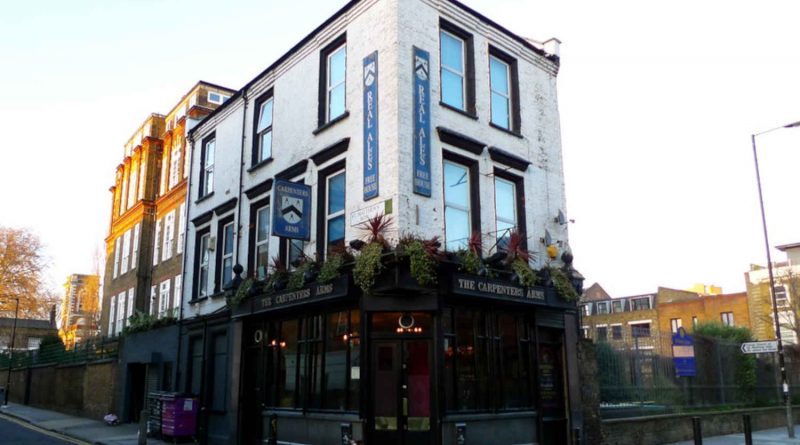Some of the best things to do in Bethnal Green
Bethnal Green has plenty to do with amazing eateries, bars, entertainment and leisure facilities.
Bethnal Green is very well-connected to the rest of London; however, you don’t need to leave the area for a day out as there’s so much just waiting on our doorstep. Bethnal Green is nestled between Shoreditch and the rest of the East End, creating an area which is a mix between old and new East London.
This guide picks out some of the best things to do in Bethnal Green:
Beigels on Brick Lane
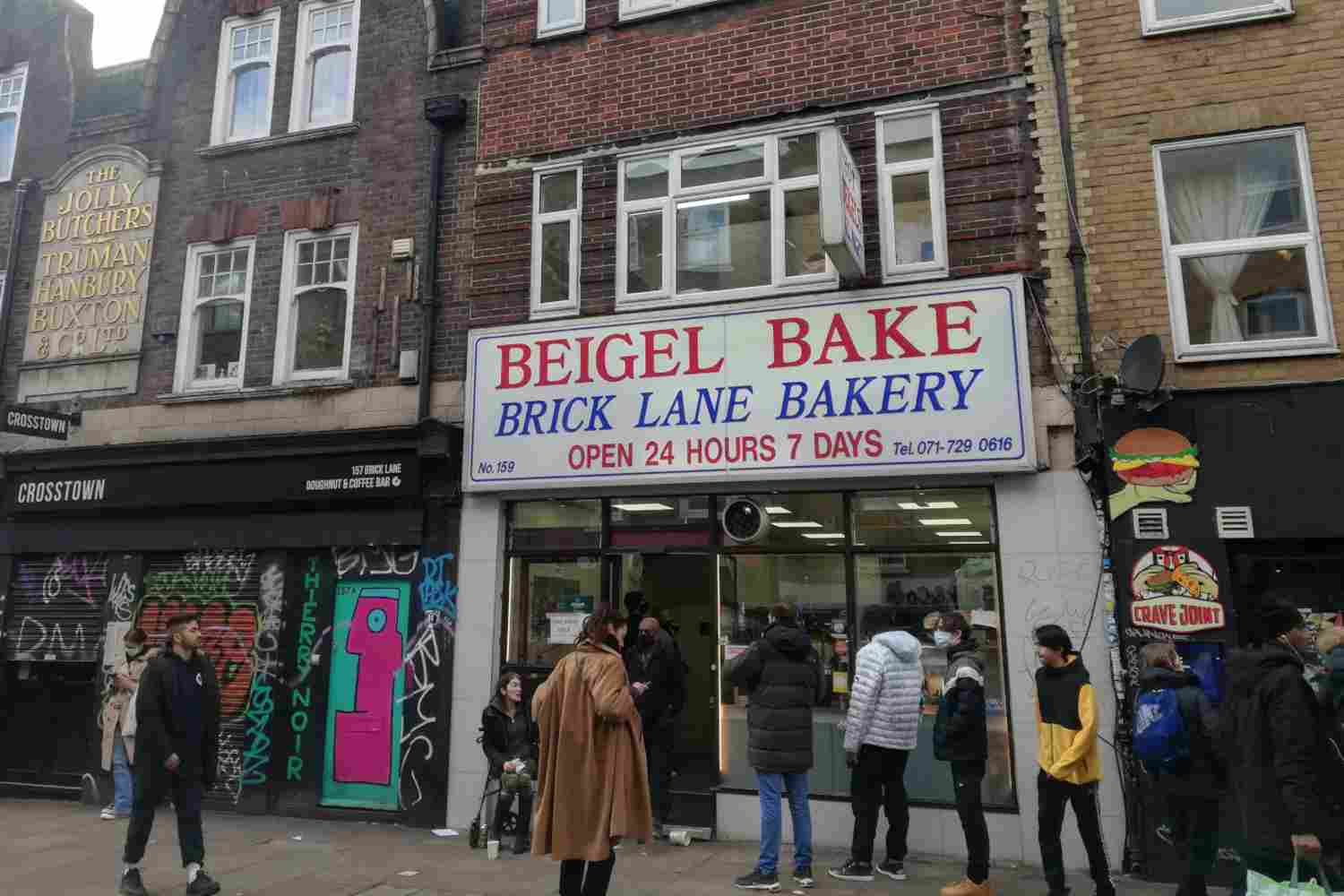
Brick Lane may be best known for the multitude of curry houses who each compete with each other to draw in customers, but at the other end of the famous street there is another food battle taking place; one between two Jewish beigel shops.
Beigel Bake and The Beigel Shop sit only a few doors apart on the Bethnal Green end of Brick Lane. Known commonly as “the yellow one” (The Beigel Shop) and “the white one” (Beigel Bake), the two shops are subject to passionate debate over which serves the best beigels.
Beigels (pronounced bi-gols) are Jewish bagels. You can sample them at either shop with a variety of fillings such as cream cheese, tuna, and perhaps the most popular salt beef with pickles and mustard. While The Beigel Shop is over a century older, fans of Beigel Bake say that the white-fronted shop has stayed true to its roots, with the fillings on offer remaining fairly select and traditional. The Beigel Shop on the other hand has branched out, offering fillings as unusual as onion bhaji.
Which shop is better? The best way to find out is to try both.
York Hall Turkish Baths

The York Hall is a venue that is probably most closely associated with boxing with many of the UK’s greatest boxers having fought in the hall; however, the leisure centre also provides more relaxing activities in the spa. York Hall is home to one of London’s last remaining Turkish Baths. Turkish Baths are associated with the Islamic World, and are based on the Roman model of baths. By booking to visit the Turkish Baths in York Hall, you can relax in a way that has been tried and tested over more than a thousand years. The historic space and Turkish baths is also complemented by modern spa treatments such as massages and facial treatments.
The York Hall is something a hidden gem, tucked away just off Cambridge Heath Road. Fear not though, the leisure centre is just a short five minute walk from the tube station, meaning you won’t have to walk far before you embark on your relaxation journey!
Weaver’s Fields
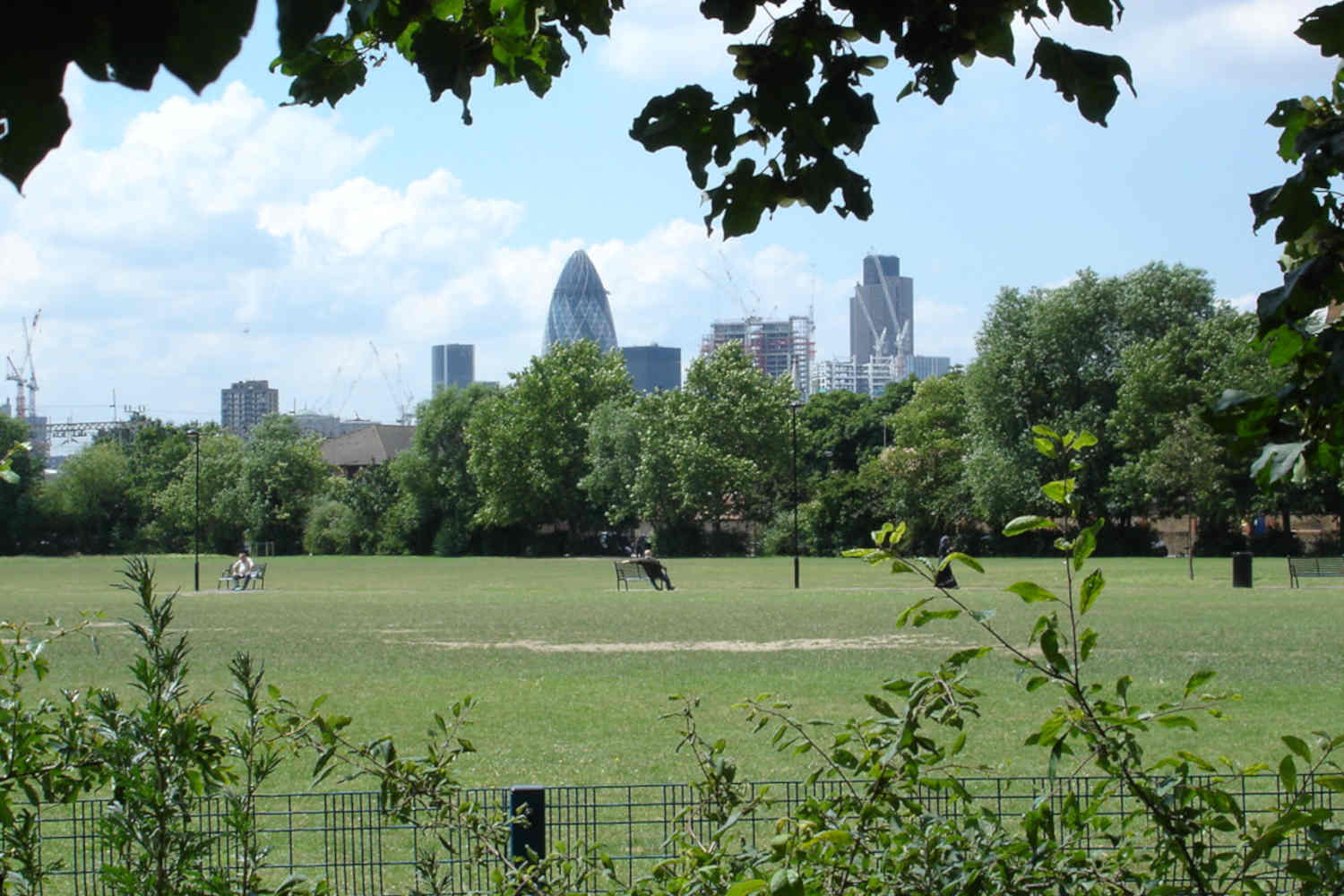
If you have occasion to walk down Bethnal Green Road, you can take a greenspace detour by slipping down a side road and walking through Weaver’s Fields. The small park is a great space for outdoor games like football and is home to a sculpture called “Weaving Identities”. There is even an adventure playground to the side of the green space.
Looking west as you walk across the park you can also see great views of the City of London. A particularly lovely time to take a walk in the park is nearing sunset when you can watch the light disappear from behind the silhouettes of the skyscrapers you see in the distance.
E. Pellicci’s Cafe
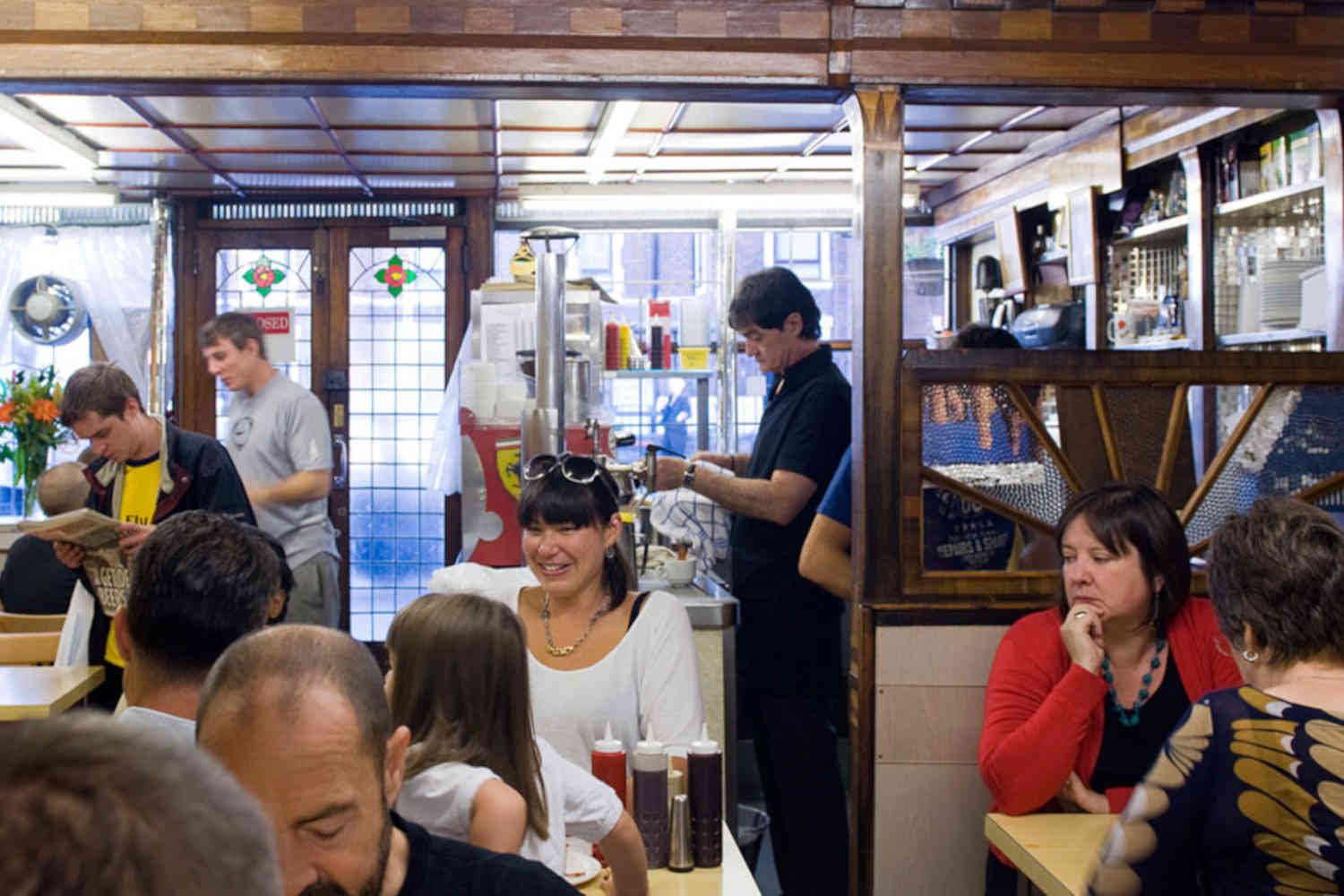
Pellicci’s has been a fixture of Bethnal Green Road for well over a century. Since 1900, the cafe has been run by the Pellicci family, serving hearty fry-ups in the morning, and filled rolls and homemade pasta dishes at lunchtime.
The cafe bears much of its original charm and was awarded Grade II listed status by English Heritage in 2005.Pop in for a bite, and you will see framed photos of the original founders Priamo and Elide Pellicci. When her husband Priamo died in 1930, Elide single-handed raised seven children alongside running the cafe. The E initial which remains emblazoned on the art deco sign on the cafe front represents her name. Her son Nevio Snr. was born above the cafe and ran it until 2008. Today, his wife Maria heads up this family business.
The food at Pellicci’s has been enjoyed by some of Bethnal Green’s most famous (and infamous) residents. The Kray Twins used to frequent the cafe, and Reggie Kray described in his biography how, after years in prison, he would do anything for one last meal in Pellicci’s.
V&A Museum of Childhood and Gardens
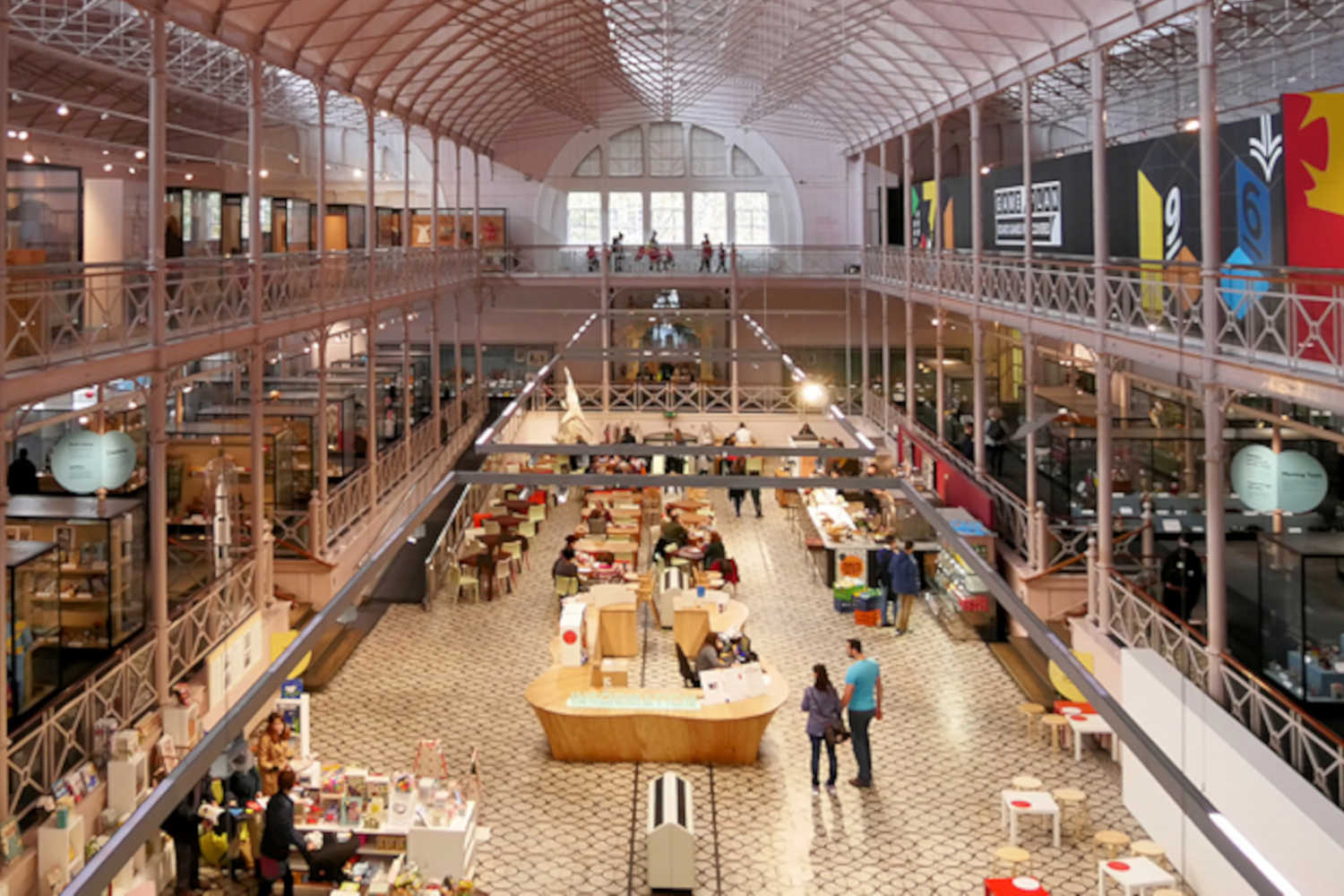
Since its establishment in 1872, the V&A Museum has been a great landmark of Bethnal Green. The museum sits just beyond the tube station, and is bordered by Museum Gardens. Museum Gardens is a small but pretty park, perfect for a wander on the way to the museum and perhaps enjoying a coffee while you watch one of the park’s resident squirrels climb the trees which line the park.
The museum itself specialises in objects by and for children. It houses over 30,000 childhood related objects. Unfortunately, the museum is currently closed while it undergoes renovations. The new facilities and galleries being installed are set to enhance the existing Victorian architecture. A taste of the new plans can be seen on the V&A Museum of Childhood’s website, here
Bethnal Green Working Men’s Club

From the outside, Bethnal Green Working Men’s Club on Pollard Row looks like a typical institute of its kind, that is, except for the yellow flower which covers the side of the wall, which was painted by street artist Bansky. Aside from that the Working Men’s club looks like a traditional club where you would expect to find older men drinking pints of lager.
Well, while the club does provide a home for traditional working men’s customers, this clientele exists alongside a range of diverse and colourful range of entertainment that is more unexpected.
Entertainment on display at Bethnal Green Working Men’s Club includes drag, cabaret and outrageous comedy. The club’s decor adds an enjoyable contrast to the flamboyant acts on display, the club retains its traditional 80s style carpets and little round tables. If you go for a night at Bethnal Green Working Men’s Club, expect the unexpected!
Bethnal Green Town Hall
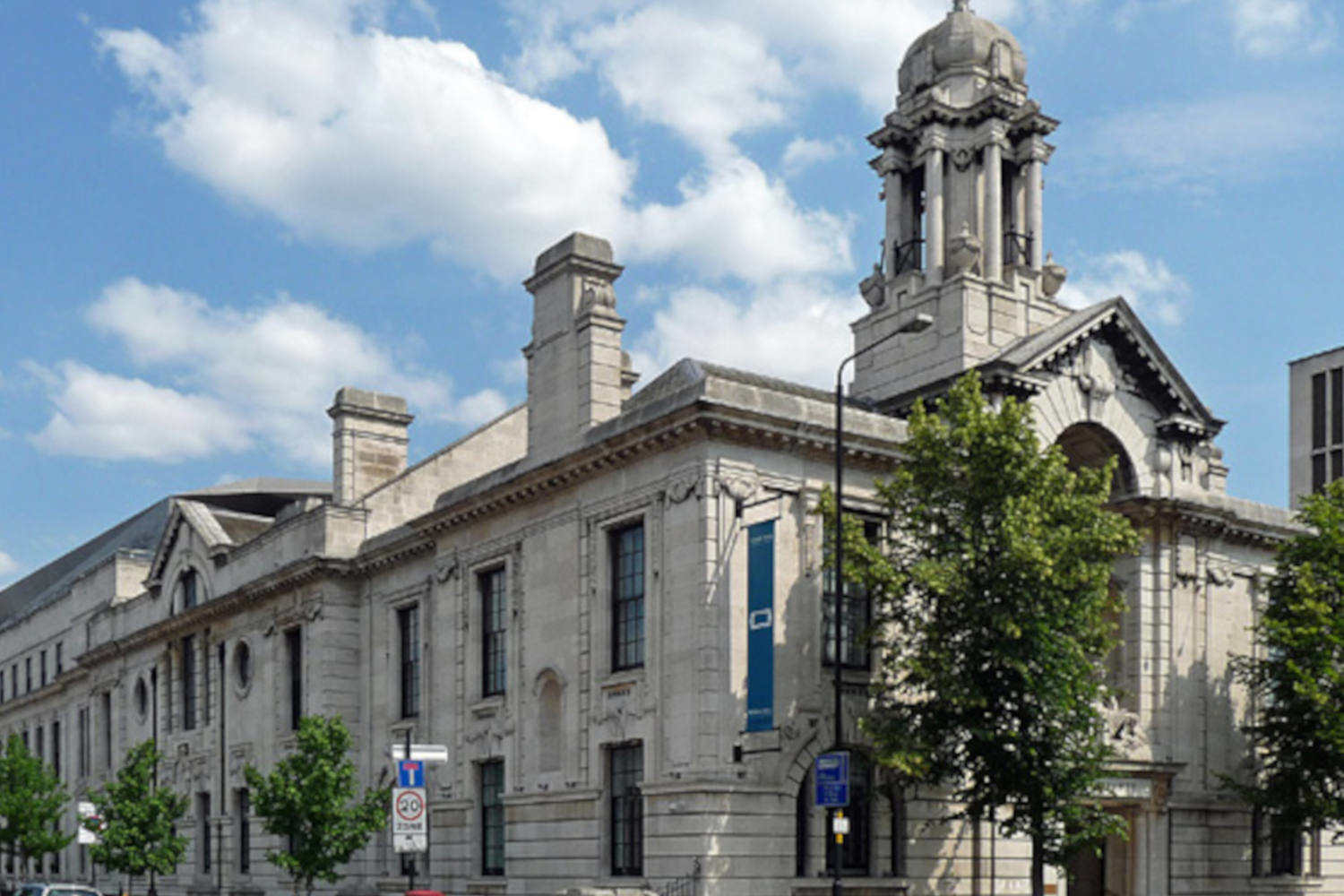
Stray a bit further from the tube down Cambridge Heath Road and you will walk past Bethnal Green’s former town hall. The Edwardian building is not just a piece of history, but also an active hotel with two restaurants and a cocktail bar. The building retains many of its beautiful original features. While you might not want to stay the night in the local five-star hotel, the cocktail bar would make a perfect spot for a pre-dinner tipple.
The Carpenter’s Arms
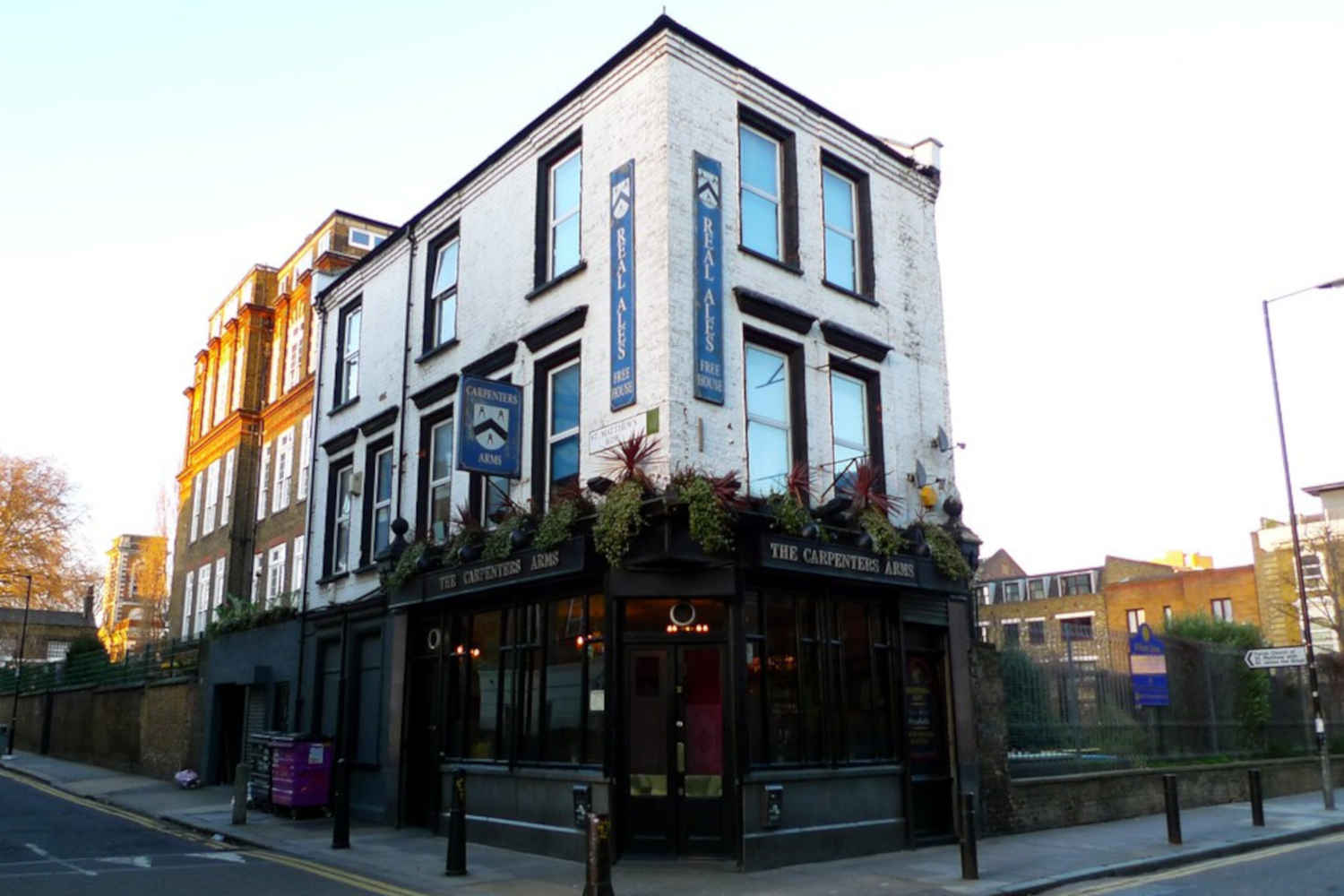
Old and new East London are often described as being in competition with each other, but in The Carpenter’s Arms, the two eras mix perfectly. The pub is associated with the Old East End in that it has a rich history and association with the area. The pub was once a favoured haunt of Reggie and Ronald Kray, and was apparently owned by their mother. The Carpenter’s Arms retains wood-panelled traditional decor. On the other hand, the pub appeals to new East enders, with its wide range of beers and modern pub-grub.
The Carpenter’s Arms is the perfect spot for a pub lunch and pint, if you can choose just one of the many beers they offer!
Breid Bakers

Tucked under an arch in a railway bridge is Breid. Breid is a bakery shop that produces freshly made bread, along with pastries and other baked goods. The bread is all handcrafted with organic ingredients onsite.
Popping into the shop to buy a freshly made loaf is sure to provide joy as you can see the process going on in front of you. The shop, which is close to Bethnal Green overground, also serves delicious coffee and pastries, why not treat yourself before you or after you hop on the train?
Stairway to Heaven Memorial
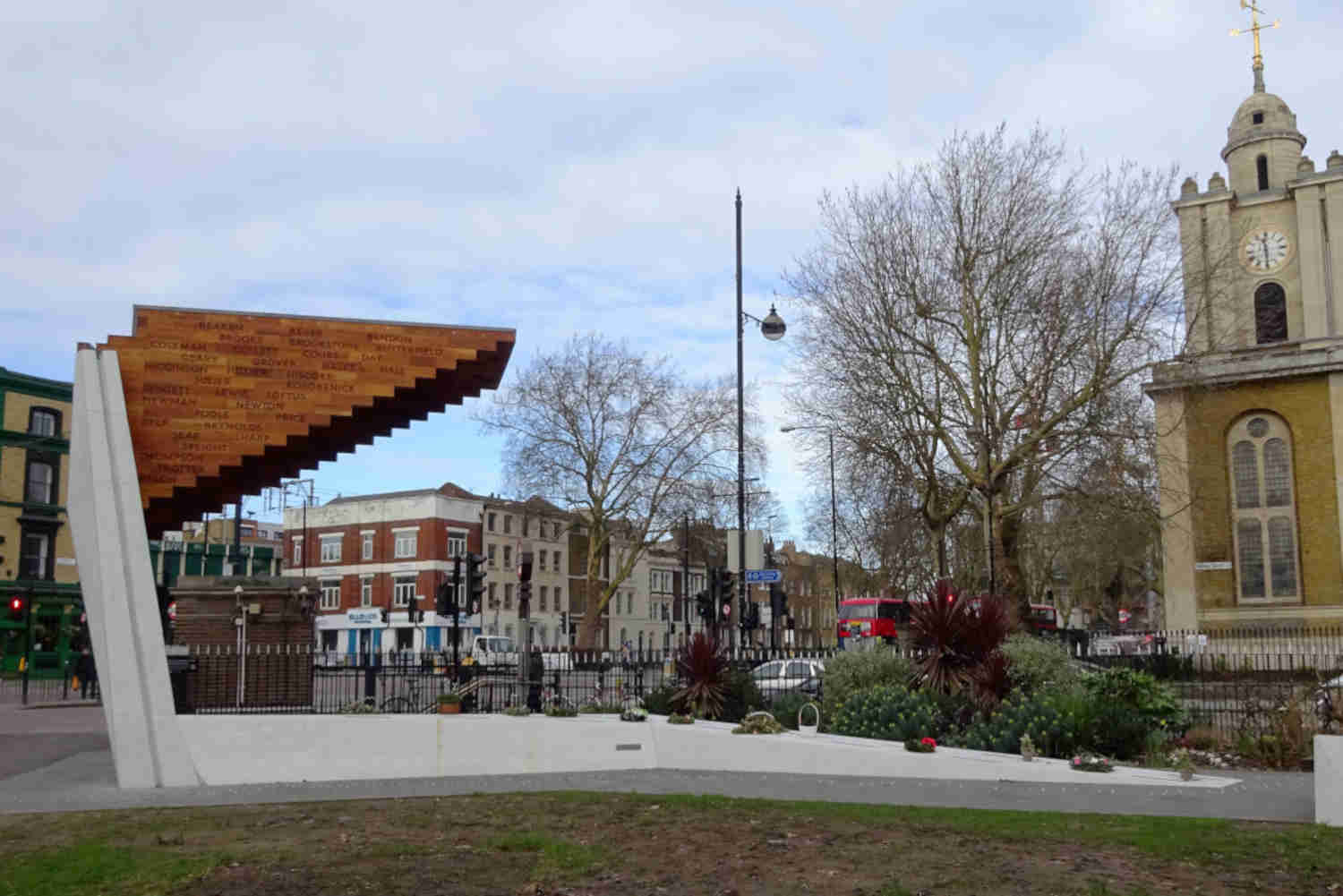
When you emerge from Bethnal Green tube station it is hard to miss the striking memorial. The Stairway to Heaven memorial commemorates those who lost their lives in the Bethnal Green Tube Disaster in 1943. The disaster, which was the single biggest loss of civilian life during WW2, occurred when 170 sheltering from an air-raid were crushed on the stairs on Bethnal Green Tube station.
The names of those who lost their lives that night are emblazoned on the memorial, which sits at the edge of Bethnal Green Gardens, close to the tube entrance. The statue serves as a poignant reminder of the tragedy, the benches which surround it allow people to stop and reflect on the terrible incident as well as admire the striking memorial.

